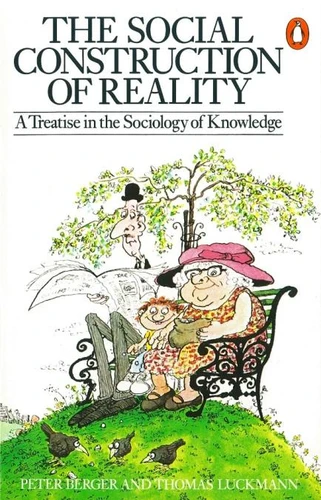The Social Construction of Reality. A Treatise in the Sociology of Knowledge
Par : ,Formats :
Disponible dans votre compte client Decitre ou Furet du Nord dès validation de votre commande. Le format ePub protégé est :
- Compatible avec une lecture sur My Vivlio (smartphone, tablette, ordinateur)
- Compatible avec une lecture sur liseuses Vivlio
- Pour les liseuses autres que Vivlio, vous devez utiliser le logiciel Adobe Digital Edition. Non compatible avec la lecture sur les liseuses Kindle, Remarkable et Sony
- Non compatible avec un achat hors France métropolitaine
 , qui est-ce ?
, qui est-ce ?Notre partenaire de plateforme de lecture numérique où vous retrouverez l'ensemble de vos ebooks gratuitement
Pour en savoir plus sur nos ebooks, consultez notre aide en ligne ici
- Nombre de pages256
- FormatePub
- ISBN0-14-193163-9
- EAN9780141931630
- Date de parution28/03/1991
- Protection num.Adobe DRM
- Infos supplémentairesepub
- ÉditeurPENGUIN
Résumé
A general and systematic account of the role of knowledge in society aimed to stimulate both critical discussion and empirical investigations. This book is concerned with the sociology of 'everything that passes for knowledge in society'. It focuses particularly on that 'common-sense knowledge' which constitutes the reality of everyday life for the ordinary member of society. The authors are concerned to present an analysis of knowledge in everyday life in the context of a theory of society as a dialectical process between objective and subjective reality.
Their development of a theory of institutions, legitimations and socializations has implications beyond the discipline of sociology, and their 'humanistic' approach has considerable relevance for other social scientists, historians, philosophers and anthropologists.
Their development of a theory of institutions, legitimations and socializations has implications beyond the discipline of sociology, and their 'humanistic' approach has considerable relevance for other social scientists, historians, philosophers and anthropologists.
A general and systematic account of the role of knowledge in society aimed to stimulate both critical discussion and empirical investigations. This book is concerned with the sociology of 'everything that passes for knowledge in society'. It focuses particularly on that 'common-sense knowledge' which constitutes the reality of everyday life for the ordinary member of society. The authors are concerned to present an analysis of knowledge in everyday life in the context of a theory of society as a dialectical process between objective and subjective reality.
Their development of a theory of institutions, legitimations and socializations has implications beyond the discipline of sociology, and their 'humanistic' approach has considerable relevance for other social scientists, historians, philosophers and anthropologists.
Their development of a theory of institutions, legitimations and socializations has implications beyond the discipline of sociology, and their 'humanistic' approach has considerable relevance for other social scientists, historians, philosophers and anthropologists.



